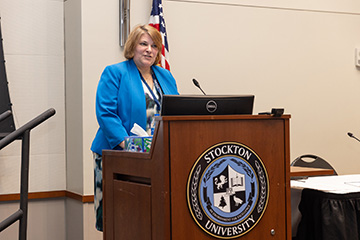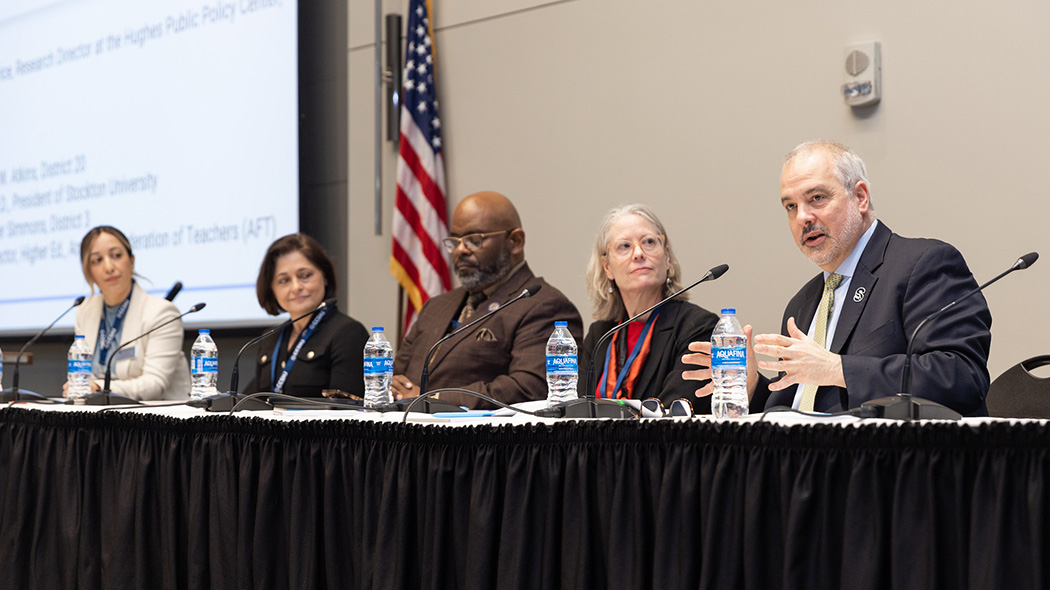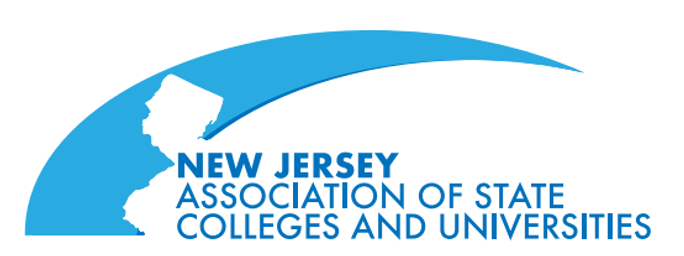How important are public colleges and universities in New Jersey?
They generate $6 billion in economic activity and contribute $220 million in tax revenue to the state each year.
For every $1 million invested in the seven public institutions of higher education, including Stockton University, $16 million in economic activity is generated, supporting about 36,000 jobs in the Garden State, according to the New Jersey Association of State Colleges and Universities (NJASCU).

Jennifer Keyes-Maloney, the executive director of the New Jersey Association of State Colleges and Universities (NJASCU) was the keynote speaker at the conference.
“These institutions not only shape the future of our workforce, but also act as a stabilizing influence, ensuring access to an affordable, high-quality education in the face of shifting national priorities,” said NJASCU Executive Director Jennifer Keyes-Maloney. “Now more than ever, they deserve the attention, resources and support to continue their essential mission.”
Keyes-Maloney was the keynote speaker at a conference titled “The Power of Public Colleges and Universities: Preserving and Advancing New Jersey’s Higher Education Landscape.” The event was held Feb. 26 at Stockton and attended by about 90 state legislators and community and higher education leaders. Among the legislators who participated in the panel discussions were State Senator Vince Polistina, Assemblywoman Claire Swift and Assemblyman Don Guardian.
Stockton President Joe Bertolino initiated the conference because he felt it was important to bring state stakeholders together to discuss the best ways to strengthen and revitalize New Jersey’s public higher education system into the future.
“Ultimately, we share a common mission and that is to ensure that our public colleges and universities remain strong, they remain accessible and prepared to meet the evolving needs of our students, our workforce and our communities,” he said.
Bertolino believes that higher education and the perception of its value is at a crossroads.
“We are grappling with declining enrollment, shifting workforce demands, a changing financial landscape and most significantly the influence from an impact of federal regulations and changes to both policies and funding have presented significant challenges to our institutions,” he said.
“However, amidst all these challenges, one fact remains: Our New Jersey public colleges and universities are engines for economic growth. We prepare thousands of students each year. Students who go on to fuel our workforce, lead our businesses and serve in our communities.”

The event consisted of four panel discussions on how higher education can be an economic engine, how colleges and universities serve different populations and drive social mobility, how alums from New Jersey schools have benefitted from a public education, and how legislation can strengthen these institutions.
